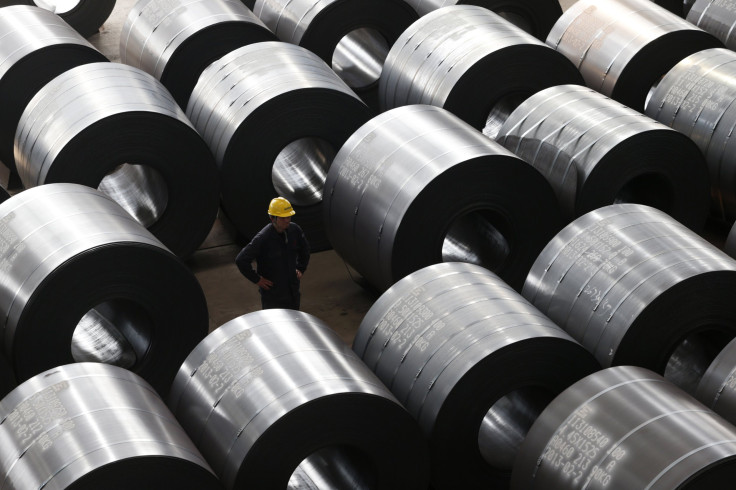China To Post Slowest Economic Growth In 14 Years

When China reports fourth-quarter gross domestic product data next Monday, it is likely to confirm that the world’s second-largest economy expanded in 2013 at its slowest pace in 14 years.
Both the National Bureau of Statistics and the HSBC PMIs showed broad-based declines in the manufacturing sector last month and the business sentiment indicator continued its downtrend, pointing to an easing in growth momentum.
Economists polled by Reuters forecast that Chinese economic growth could slow to 7.6 percent between October and December from a year earlier, from 7.8 percent in the previous quarter. If proved correct, China’s economic growth in 2013 would be the weakest showing since 1999 in the aftermath of the Asian financial crisis.
The forecast is below the 2012 rate of 7.7 percent and the 9.3 percent recorded in 2011, but above the government's 7.5 percent target set at the beginning of last year.
China’s top leaders set the economic growth target for 2014 at about 7.5 percent, Chinese financial news outlet Caixin reported Dec. 16, citing a conclusion reached at the annual central economic work conference that ended Dec. 13. The official announcement of the growth goal usually comes in March at the National People’s Congress.
China's leaders want to reduce the economy’s reliance on investment and exports, while expanding household consumption, which now accounts for around 35 percent of the economy, about one-half of the 70 percent rate in the U.S.
In 2013, China’s combined exports and imports rose 7.6 percent, below the official target of 8 percent. In 2012, China missed a 10 percent annual growth target. The government does not set any target on exports.
China's inflation was 2.6 percent over the whole of 2013, well within the government's target limit of 3.5 percent. Analysts believe Beijing will also stick with the 3.5 percent inflation target this year.
December Data Release Preview
Tuesday (9 p.m. ET) – FX Reserves: Economists think that foreign exchange reserves grew by a further $140 billion in the fourth quarter, to $3.80 trillion. “Looking ahead, with the trade surplus likely to remain substantial, we expect reserve accumulation to continue,” Capital Economics’ Mark Williams and Qinwei Wang said in a note.
Tuesday (9 p.m. ET) – Bank Lending: In December, economists expect new loans to fall slightly to 600 billion yuan ($99.3 billion) from 625 billion yuan in November, with the year-over-year growth of outstanding loans edging up to 14.30 percent from 14.20 percent. This could bring the increase in new loans in 2013 to around 9 trillion yuan, in line with the People’s Bank of China’s target.
China's biggest four banks extended 180 billion yuan of new loans in December, compared with 199.6 billion yuan in November, according to the Shanghai Securities News. Economists expect M2 growth of 13.80 percent year-over-year in December, down from 14.20 percent in November.
Meanwhile, Bank of America Merrill Lynch economists led by Xiaojia Zhi project the headline total social financing could moderate to around 1.05 trillion yuan in December from 1.23 trillion in November, likely due mainly to a drop in non-discounted bankers’ acceptance and bond issuance as bill discount rate and money market rates jump.
Sunday (9 p.m. ET) – Industrial Production, Fixed-Asset Investments and Retail Sales: Industrial production in December probably increased by 9.80 percent, after growing by 10.0 percent in November.
Fixed asset investment growth probably grew by 19.8 percent year-over-year in December, compared with 19.90 percent in November. “Besides the need for a deepening of reforms and addressing of structural issues, elevated interest rates across the money, bond and credit markets could lead to higher funding costs and weigh on economic growth,” Barclays Capital economist Jerry Peng wrote in a note Friday.
Retail sales growth may moderate to 13.60 percent year-over-year in December after a surprisingly strong reading of 13.7 percent in November, which in turn could have been boosted by big retailer promotions around Nov. 11 (China’s Singles Day).
“We believe the moderation in December from November was due mainly to lower CPI inflation, a higher comparison base and a natural decline in sales growth after a strong showing on Singles Day,” Bank of America Merrill Lynch economists led by Xiaojia Zhi wrote in note.
© Copyright IBTimes 2024. All rights reserved.






















